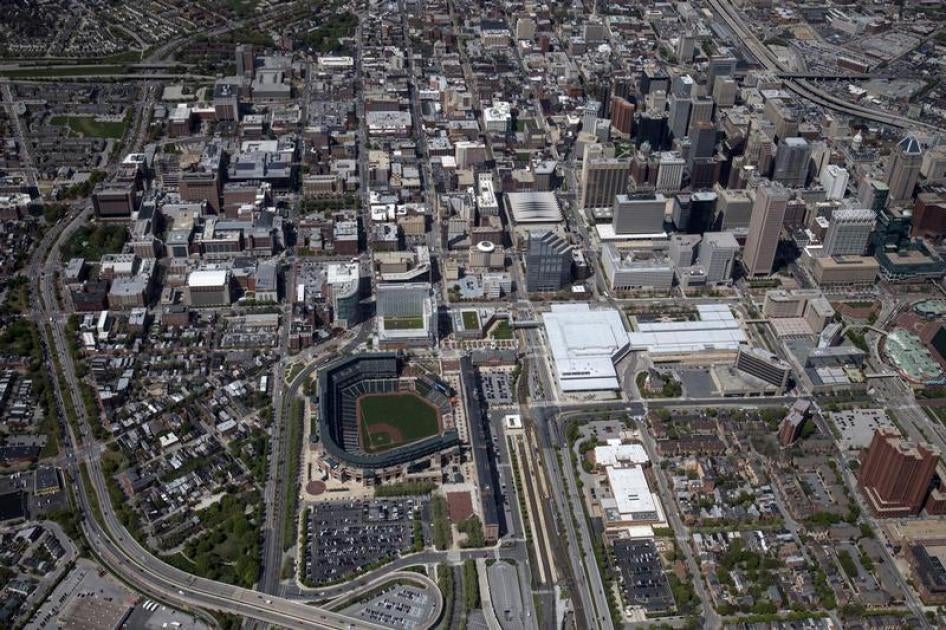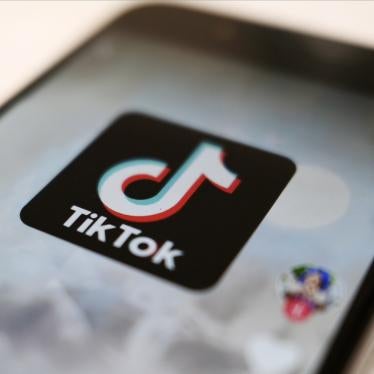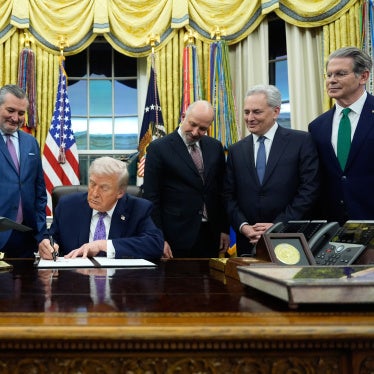Press reports last week provided a startling new insight into police surveillance in Baltimore, showing that the authorities have been using a private surveillance company to take detailed aerial photographs of large swaths of the city at one-second intervals. This disclosure should prompt renewed questions about US agencies’ habit of trampling over privacy rights – including by exploiting outdated legal loopholes in a way that the public has no way of foreseeing.
While international human rights courts have not yet ruled on Baltimore-style aerial surveillance, we know the human right to privacy includes the right to go about one’s business in public without being systematically or permanently recorded (unless such monitoring is strictly necessary, proportionate, and subject to adequate safeguards). Additionally, the right to privacy has a “foreseeability” requirement: governments that wish to conduct surveillance must ensure that their laws are clear enough to give people an understanding of the kinds of circumstances under which this snooping might take place. For example, someone should be able to look at the law and see what kinds of criminal behaviors might lead the police to tap her phone – and should know that if she isn’t committing any of those crimes, she really will be able to discuss her thoughts and beliefs freely without the government listening in and taking notes.
Unfortunately, the Baltimore program is part of a pattern in which US agencies conduct secret surveillance on a large scale, and do so by relying on legal loopholes in a way that would take the public by surprise.
Under the Fourth Amendment to the US Constitution, police generally must obtain a warrant from a judge before searching an area (or communication) in which an individual has a “reasonable expectation of privacy.” Media accounts suggest that the legal basis for the Baltimore surveillance flights was a series of cases from the 1980s in which the Supreme Court found that authorities did not violate the Fourth Amendment when they used aircraft to inspect specific properties. However, these cases involved only targeted surveillance – not spying on an entire city. Moreover, the Supreme Court has never said that people lose their privacy rights as soon as they step outside their doors. In fact, it has said the opposite.
Other recent US surveillance programs have rested on similar stretches of outdated laws. For example, the Supreme Court found in 1979 – an era of landlines and itemized phone bills – that people do not have a reasonable expectation of privacy in the numbers they dial, since they voluntarily share this information with the phone company. (International human rights courts uniformly disagree.) The federal government subsequently used this case to justify grabbing records of all domestic telephone calls and storing them in a database – a practice Edward Snowden revealed and Congress has since restricted. Local governments, including Baltimore’s, have also used this outdated case to justify collecting cellphone location data without a warrant.
Secret surveillance poses a serious risk to fundamental rights, and the US – like all other governments – must ensure that its practices in this area rest on something more than laws or rulings that have been distorted beyond recognition.








